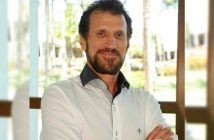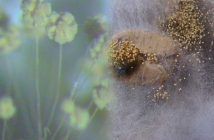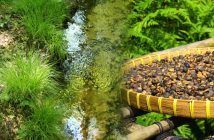The first step is to set up an association of producers still in 2018
Little Cristina, in Minas Gerais, is a pearl. With about 5 thousand inhabitants, it has a waterfall in the middle of the city, well-kept squares and preserved mansions from the 19th century. For 10 years, the city has been promoting its Festival Café com Música (Coffee and Music Festival) which, in 2018, will be held between May 30 and June 3. And now, thanks to the quality of its specialty coffees produced mainly in the Sertãozinho district, it has been gaining more and more notoriety in the specialty coffees world.
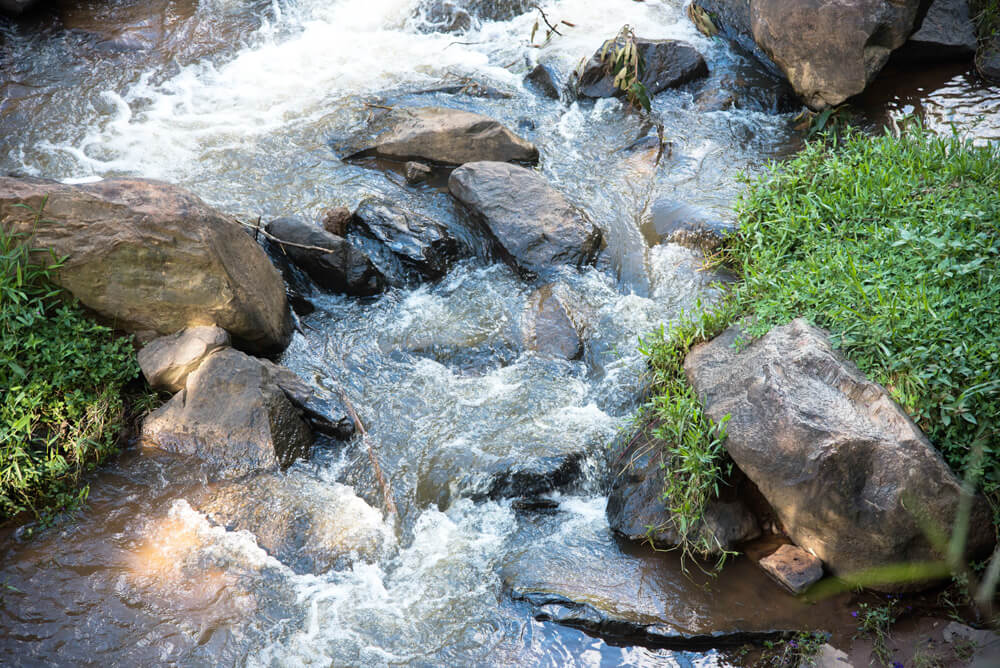
Gruta’s waterfall
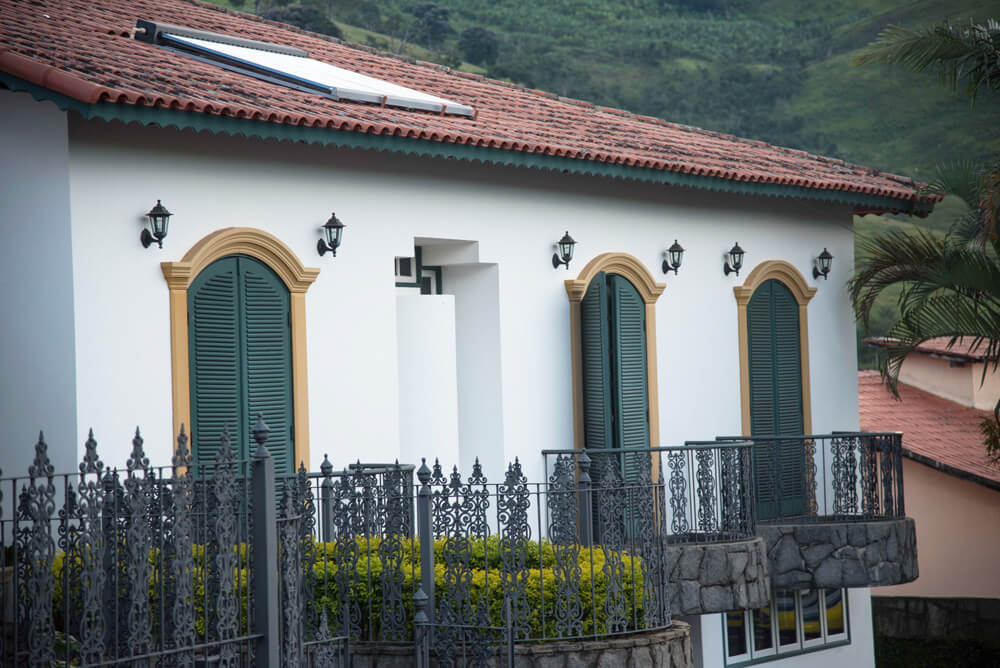
Cristina’s ancient houses
Last year, we were there to visit a family of specialty coffee producers from Sítio Vargem Alegre And we are back now to talk to other small producers who want to take a further step in their development: sell directly to the buyers, without intermediation.
“Cristina’s microclimate and the altitude make it a paradise for the specialty coffees production”
This is the case of Rogério Bueno dos Santos, he’s part of the third generation of coffee farmers. Rogério has a small farm, São Judas Tadeu, at 1300 meters high, 2.5 hectares. His neighbor, Cleverson Daniel, from the sítio Vargem Grande, which is a Qgrader, was the one who warned his friend about the quality of their coffees. It is so true that Rogério received the note 87.77, from the Destaque Brasil Show, a contest organized by the Brazilian Association of Specialty Coffees, BSCA, focused on late harvest beans. “A very citric, full-bodied coffee with notes of mango, papaya, a very interesting coffee”, describes Cléverson. In the online auction, he earned R$ 2,331.88, paid by the buyer, Huracán Coffee.
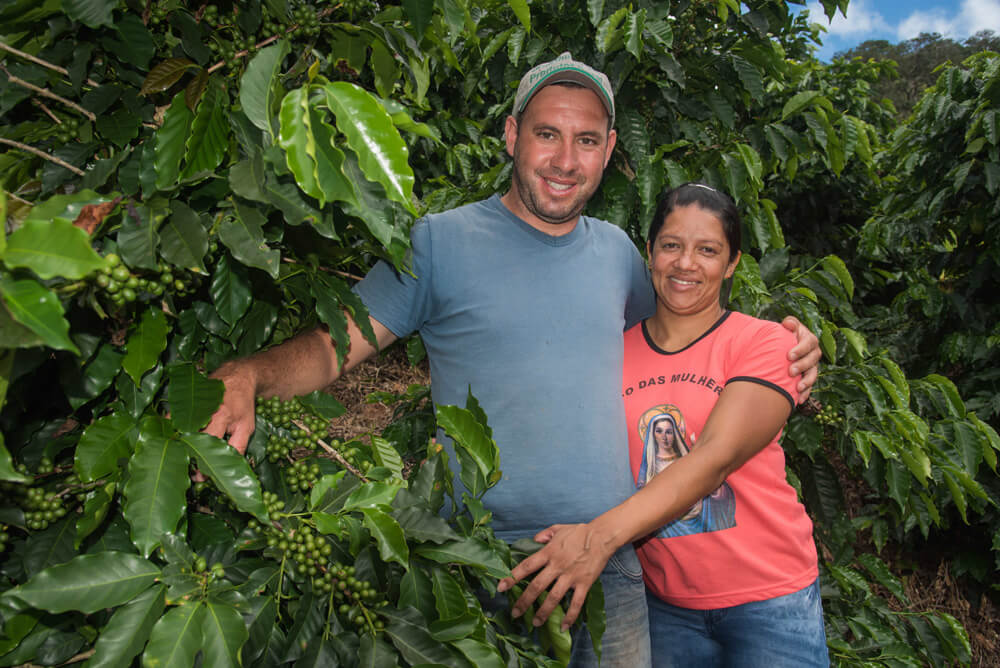
Rogério’s small farm is above 1350 meters
Rogério also won the seventh place in the Mantiqueira de Minas 2017 Coffee Competition, with 88,625 points.
He takes care of his farm all by himself, he cannot afford an assistant. He walks every day for an hour, uphill, until he arrives at his farm, since he has neither tractor nor motorcycle to help in the course. At the end of the week that we went there, to make the matters worse, his leg was injured, as result of a little soccer match.
The only person who shares the work with him is his wife, Simone Aparecida dos Santos, responsible for drying the coffee. “When the coffee is drying, I’ll be stirring it every 40 minutes until mid-afternoon. Then we started to store it, for the beans not to get moisture”, he says. They have two daughters, Lavínia and Livia, 12 and 10 years old, respectively. “Working with specialty coffees, we can offer a more comfortable life to the girls”, she says proudly.
Since they do not have space to maintain a patio, the family decided to invest in a dryer. And when it’s not being used, the machinery is lent to neighbors, about 80 small farms, all producing specialty coffees. Thus, they manage to sell their coffees at a better price, R$ 1,200,00 a sack, at the most, as long as it is peeled and reprocessed for the region’s cooperative, Cocarive.
Rogério harvests from 80 to 100 specialty coffees sacks per year from his Catuaí plantation.
Until May, which is the time when the beans start to develop, then the growth and development of the fruit. After that, the coffee begins to ripen, and in 30 to 60 days, it begins the manual harvesting process that ends only in November, the so-called late harvest.
The producer is trying to plant a new variety, the Arara coffee, which gives a bigger fruit and was developed in Varginha, by the Instituto Pro-Café. “Soon, we will know the results and see if the new species fits the region well”, he says.
Rogério speaks aligned with Eduardo Daniel da Silva, from the sítio São Sebastião, owner of a specialty coffee farm at 1350 meters of altitude, his neighbor. “We would like to shorten the distance between the end customer and us producers. The closer they are, the more value will be added to our specialty coffee. We even want to deal with the buyer from abroad”, Eduardo says.
Both Eduardo and his brother Cleverson have acted strongly to help producers in the region to get together and further improve the production of specialty coffees from neighboring producers. In Sertãozinho district, where the small farms visited by the Grão Especial are located, there are about 10 producing properties. Across the city, about 80 farms.
The Daniel brothers work has been helping those producers who really want to work with specialty coffees. First, they drink the coffee. And then they confirm if the coffee is really that good, with odds of scoring over 85 points, after that, try to help as much as possible, informally passing on the knowledge they already acquired.
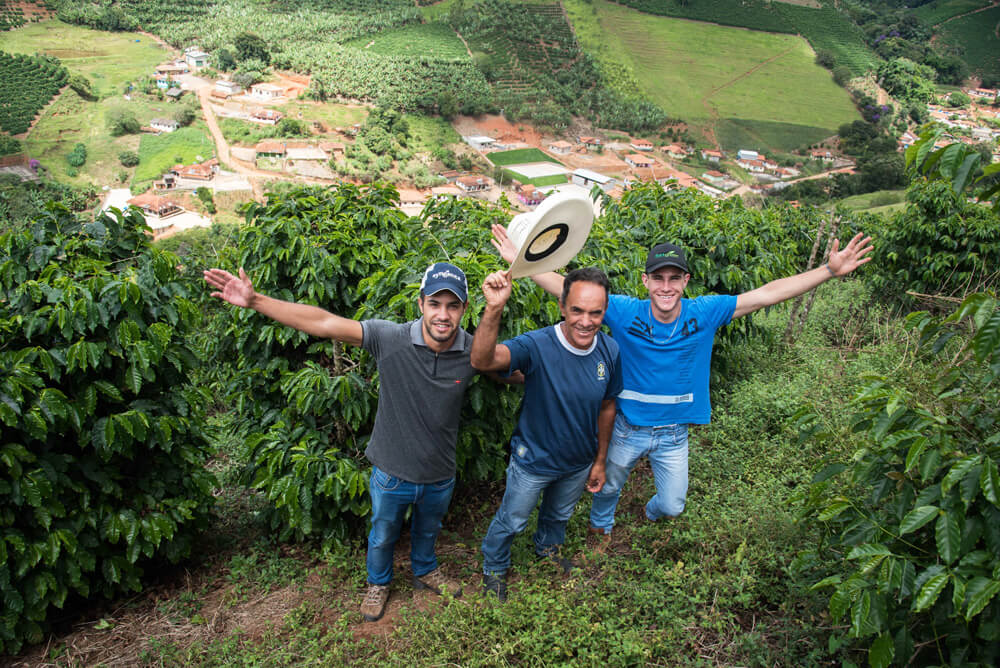
Eduardo Daniel, Cleverson and their father. Each one runs a small farm
“We’ve been talking about the foundation of an association of producers from the neighborhood still in 2018, to bring together the specialty coffees producers and to get some projects. The headquarters would be in Sertãozinho. We already have the land to build a warehouse, machinery, for processing the coffee produced in the region, as a large community”, says Eduardo.
But the Coffee grower, Sueli Cândida da Silva, owner of the sítio Santa Rita, which is 1200 meters above sea level, has a yellow catuaí plantation. Received the fifth place in the 2017 Qualidade de Café Mantiqueira de Minas contest, Natural coffee category, with a score of 88.87. “It was the first time I participated in a contest, I signed up with only one day left for the subscription deadline”, she recalls.
Unfortunately, when we were there, we could not find Sueli. A more accurate article on her small farm will be written on another occasion. But we could not miss the opportunity of remembering her achievement.
Incidentally, the winner of the 4th. Qualidade de Café Mantiqueira de Minas contest, in 2017, was Braz Francisco de Souza, in the Natural coffee category, scoring 93,25 points. As it turns out, Cristina is the house of high-quality specialty coffees.
Bananas and specialty coffees
The small producer, Elson Benedito Daniel, is the owner of the sítios Sertãozinho and Cana do Reino. His properties have an area of three alqueires, two of which produce specialty coffees, and, in the other alqueire, he grows chunkey banana, Manzano banana and apple and yellow cavendish banana. In 2014, he was second in BSCA’s Natural coffees competition, where he received the SCAA score of 93.82.
His property is in one of the highest places in the region, 1,350 meters above the sea level. “We harvested 20 coffee sacks scoring 90 points and sold it to Cocarive”, says Elson.
His whole family works together: Elson, his wife and the eldest son, Leonardo, 18 years old. Gabriel, the youngest, only studies. By the way, Gabriel loves the specialty coffees. “I do not want to keep up my regular studies, I want to work with coffee. I have already taken several courses at Senar (Sistema Nacional de Aprendizagem Rural), including tasting and machinery maintenance. I love what I do”, he says.
And as if all the family involvement in the production of the best specialty coffees of Cristina is not enough, there is also the example of the father-in-law, Paulo Ribeiro Rocha, owner of the sítios (small farms) Sertãozinho, São Judas Tadeu and São José. As you can see, the small farms names are repeated, thanks to the religious belief of the population. In this way, it is always good to know the name of the owner of each piece of land at the tip of the tongue.
Sertãozinho farm, the property of Mr. Paulo, the most experienced coffee grower of all, has an area of 1.5 hectares, São Judas farm has 5 hectares and São José farm has 2 hectares. He started working with the specialty coffees in 2008. In 2017, he collected 80 coffee sacks scoring 88 points, 10 sacks scoring 91.5 points, when he won the second place in Mantiqueira de Minas contest, organized by Cocarive.
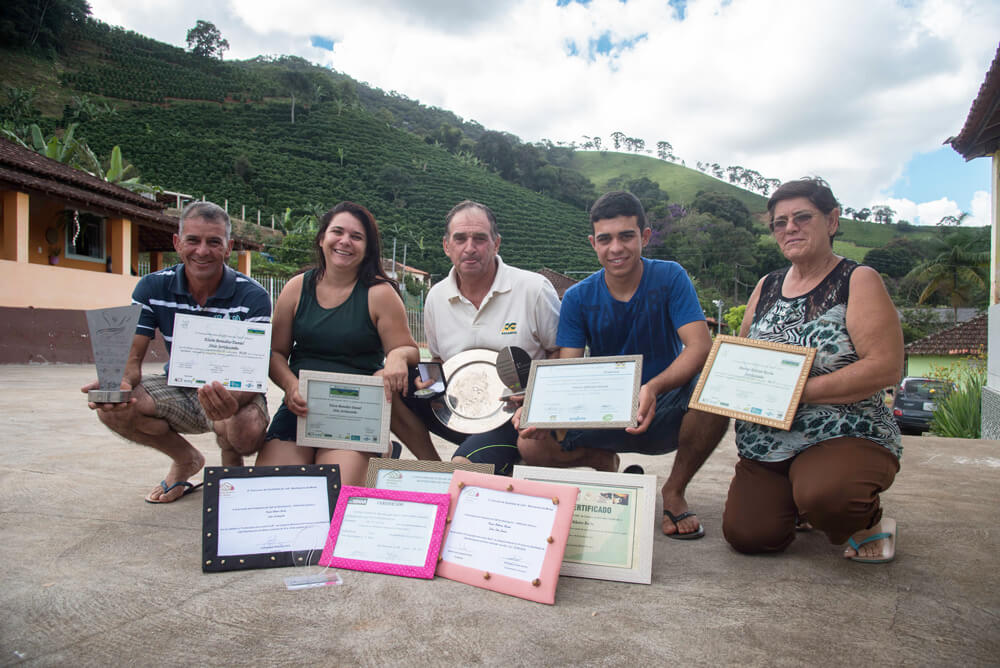
Ribeiro Rocha family: quality champion
Mr. Paulo is very serious when it comes to specialty coffees, especially with post-harvest care. “I do not accept chicken, cat, or anyone walking over my coffee. After all, coffee is food. And as such, it must be well taken care of. When the tasting time comes, if there is something wrong, the testing commission will find out. It is the smallest details that make the difference. The more we are careful, the more value our coffee will have”, he says.
“The more time goes by, our specialty coffee plantation will only improve, thanks to accumulated knowledge. My obligation is to pass on my knowledge to the family, to my daughters, to my grandchildren, passing on the message that it is with care that we can improve our coffees”, he concludes.
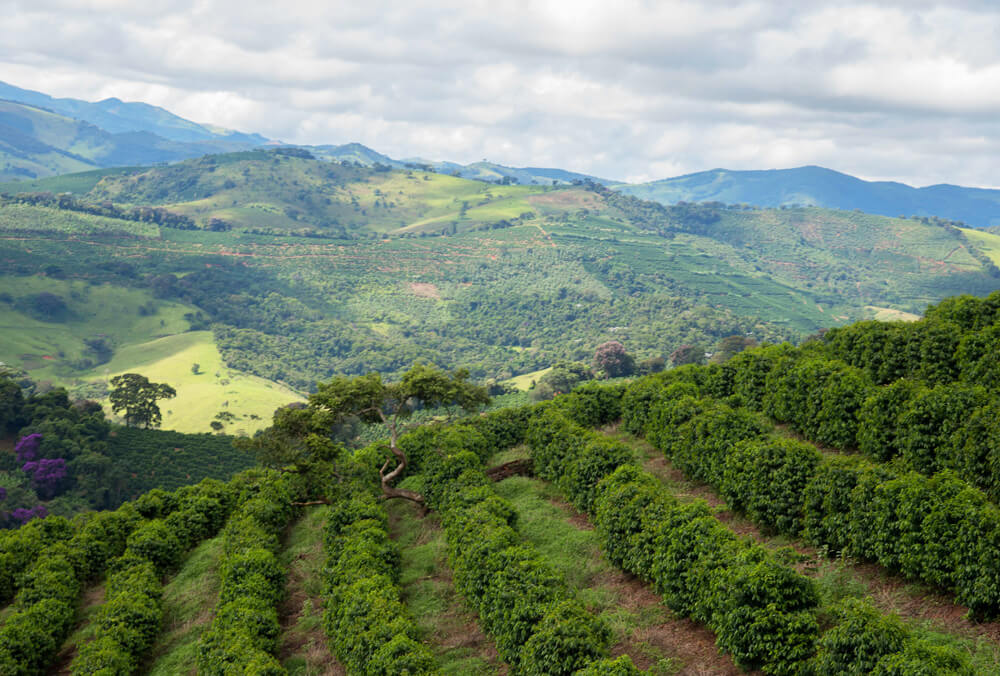
Brazilian Specialty Coffee farás. In Cristina, high altitude
Festival Café com Música
Festival Café com Música in 2018 completes ten years of existence and came from the need to promote two great customs of Cristina: specialty coffees and music.
This year the event will take place from May 30 to June 3 and the complete schedule you find on the official page of the Facebook Festival, Café com Música – 10 anos.
According to the Tourism, Culture and Environment municipal secretary of Cristina, Rafael Rezek, the event is considered the most well-structured in the south of Minas Gerais, with musical performances, dance, serenades, orchestra, handicraft exhibition, gastronomic workshops with coffee-based dishes, a barista’s workshop, a coffee tasting workshop, a photographic tour, as well as a food court with typical foods.
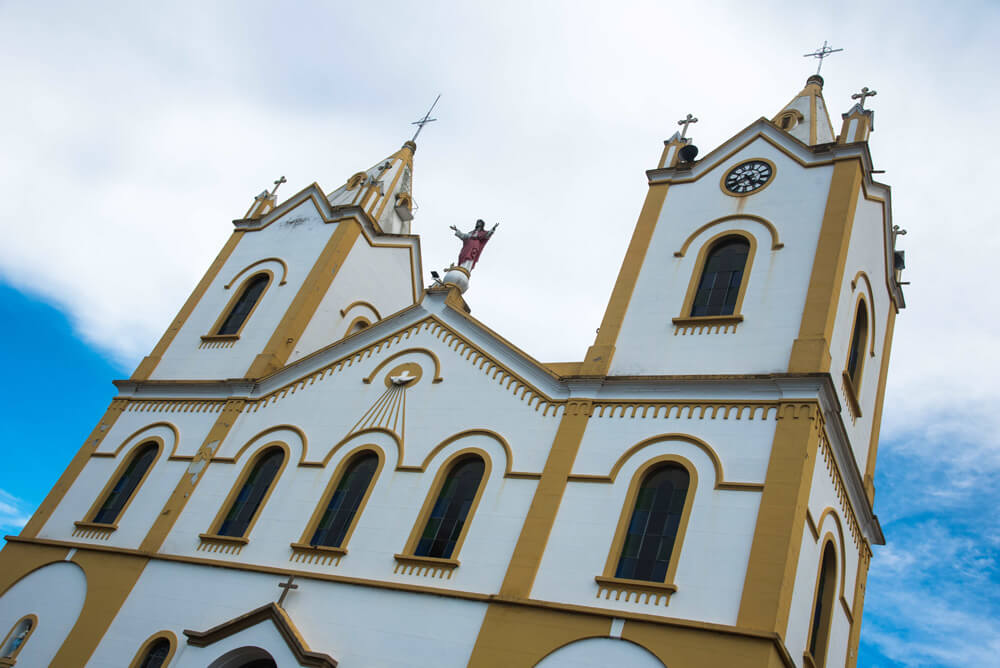
Matriz do Divino church
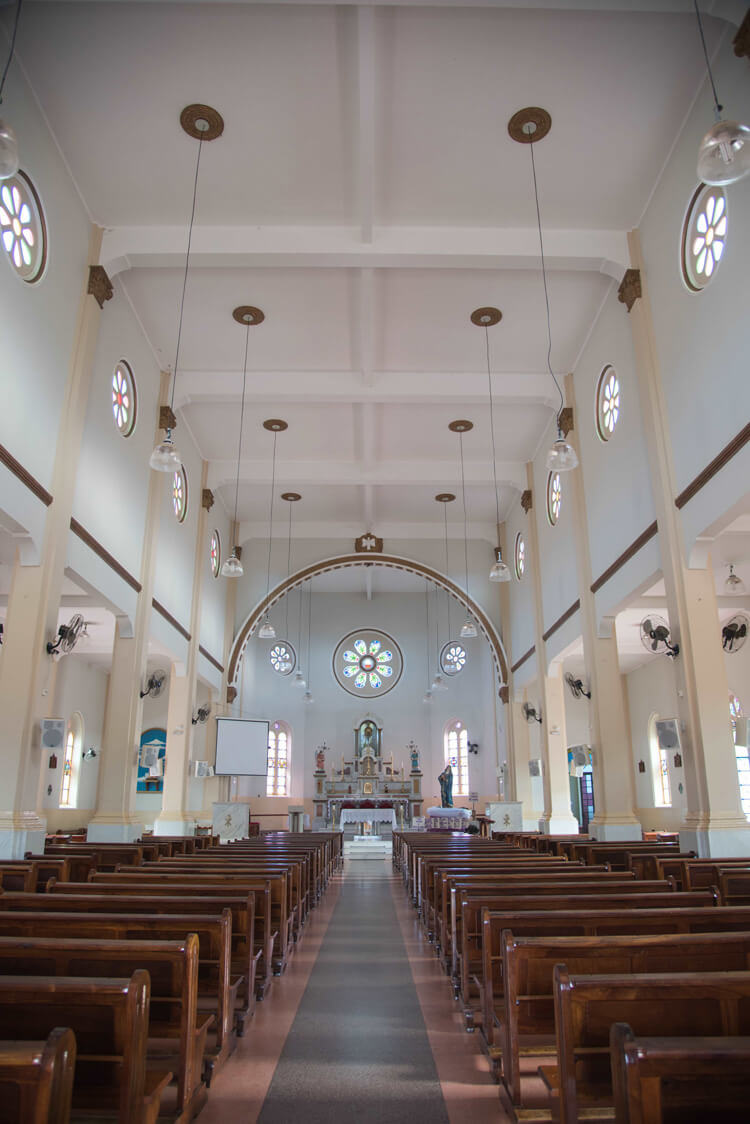
Matriz do Divino church interior
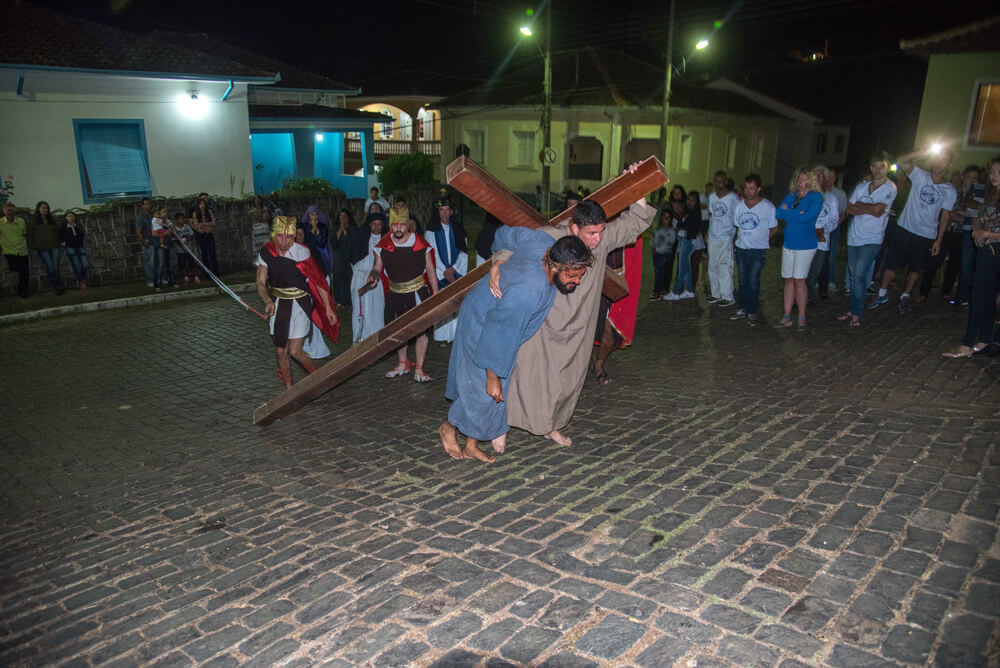
Passiion of Christ scene
If you go to Cristina, go to the Café Bistrot, owned by Antônio Mendes Jr., located in Praça Santo Antônio, w/o number, and whose opening took place on March 23. The day we were there, they were serving espressos with a coffee from the Pedra farm. But Jr. has promised that he will offer three more coffees, scoring between 86 and 88 points, all of course from the region. The instagram address is @cafebistrot.jr
Photos and videos: Clodoir de Oliveira

